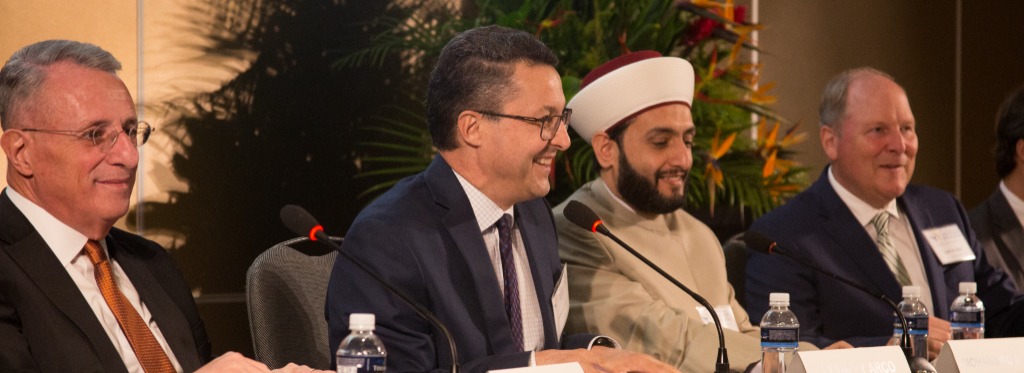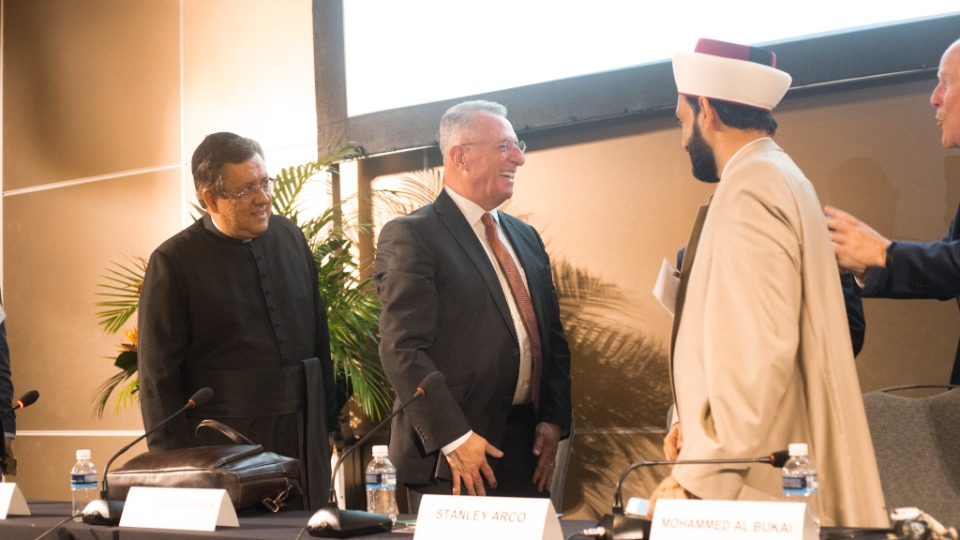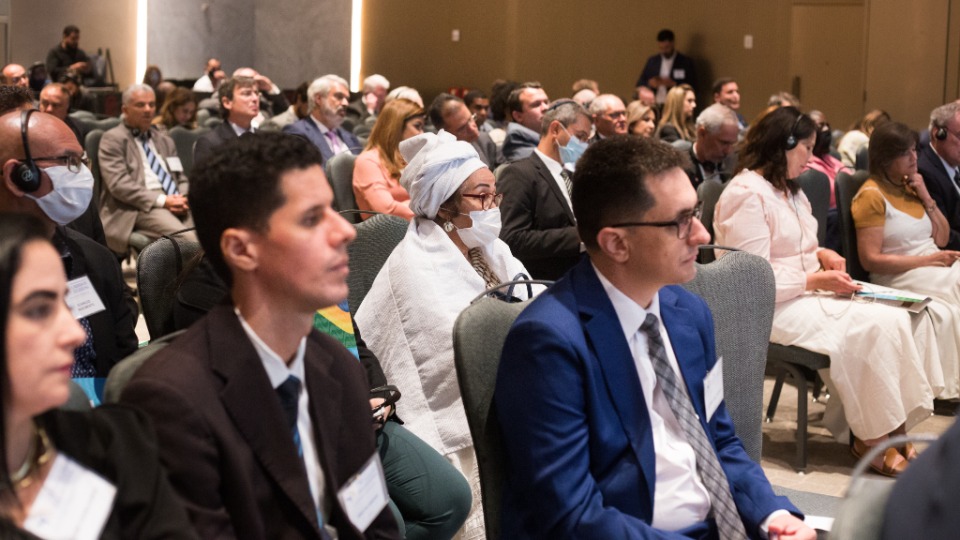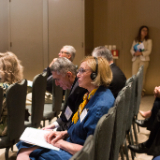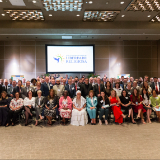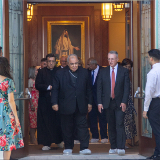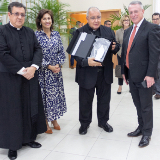| Elder Soares participates in a dialogue with representatives of Catholicism, Islam, and Seventh-day Adventism in Rio de Janeiro, on March 23, 2022. 2022 by Intellectual Reserve, Inc. All rights reserved. | 1 / 7 |
“May we celebrate together in this symposium our equality before God and the strength that comes from it in order to further strengthen coexistence, peace and respect for all,” remarked Elder Ulisses Soares of the Quorum of the Twelve Apostles. The Apostle of The Church of Jesus Christ of Latter-day Saints began Brigham Young University’s (BYU) first religious freedom symposium held in Rio de Janeiro on Wednesday evening.
The symposium is being held March 23–25 by BYU’s International Center for Law and Religion Studies at the J. Reuben Clark Law School in Provo, Utah, in partnership with the Brazilian Center for Studies in Law and Religion.
Over the next few days, the symposium will feature international speakers from Argentina, Chile, Spain, Italy, Portugal, the United Kingdom and Uruguay. Discussion topics include paths to peaceful coexistence, protection of liberty as a fundamental right, the importance of religious communities, the need for peace and reconciliation, Latin American religious perspectives, and religious freedom in the workplace.
“Religious freedom is the architecture of a healthy society,” said Elder Soares in his remarks. “It keeps the diverse parts in place, makes room for the expression of conscience and allows differences to contend without violence.”
According to the Apostle, the promotion of opposites also promotes truth. “Our minds seem to be trained to see opposites. We lock ideas and people into opposing corners without testing their compatibility, without trying their capability to adapt and grow. The prophet Joseph Smith said: ‘By providing contraries, the truth is made manifest.’”
Others speaking alongside Elder Soares included representatives from the Catholic, Muslim and Seventh-day Adventist faiths.
For Deacon Nelson Águia, secretary of the Religious Freedom Commission of the Archdiocese of Rio de Janeiro, tolerance and love are also fundamental to society, and intolerance is usually found within religion itself. “The intolerant knows texts by heart and recites quotations but does not act with love.” According to the Catholic representative, love is the great beginning to bring people closer to God.
The dialogue continued with the imam of the National Union of Islamic Entities, Mohamad Al Bukai. He highlighted an important principle of the holy book of Islam: “The Qur’an does not refer to or impose religion, but is about religious freedom. The construction must be moral, spiritual and mental,” he said.
Stanley Arco, president of the Seventh-day Adventist Church in South America, pointed out that “religious freedom exists to promote charity and protection of dignity” and that “we can all learn from each other.”
For Elder Soares' full speech, visit this link.
